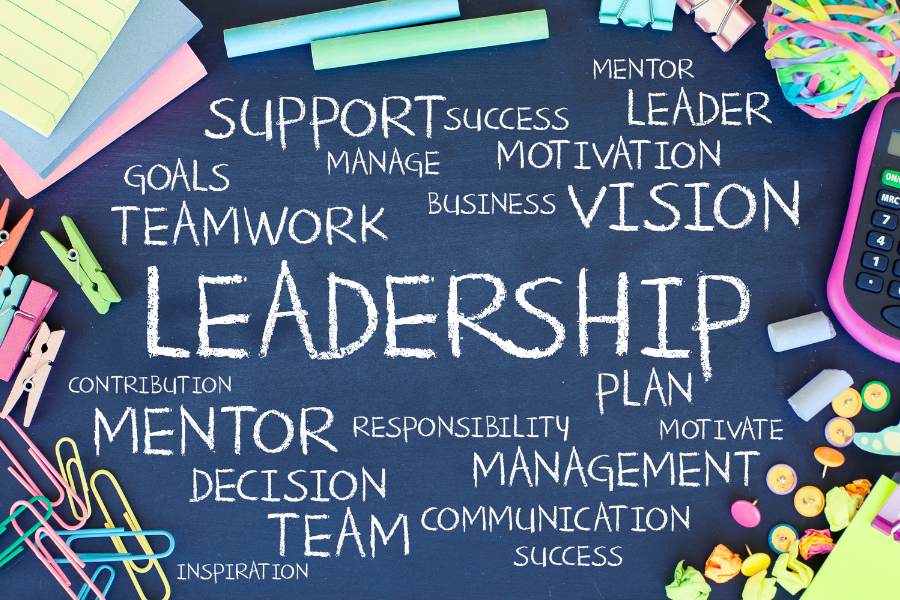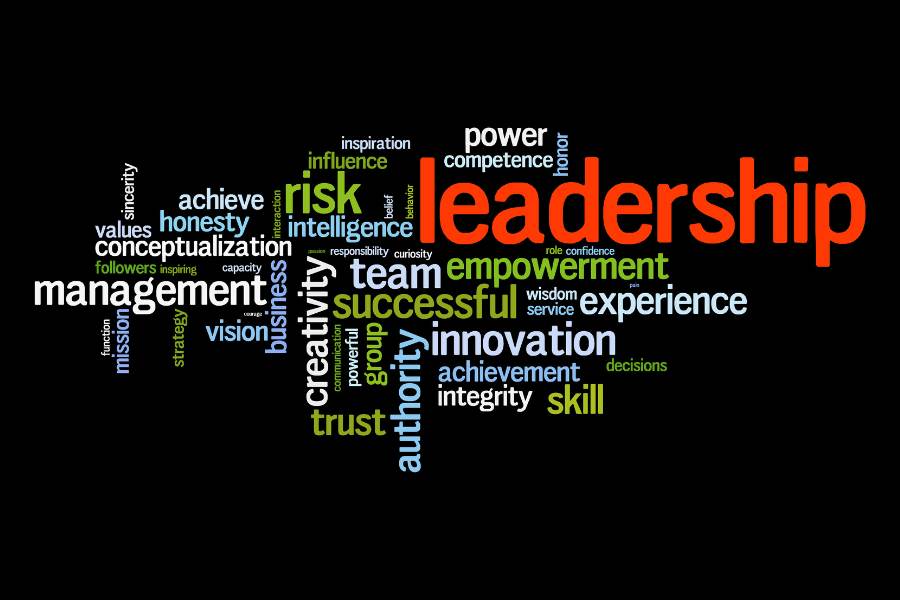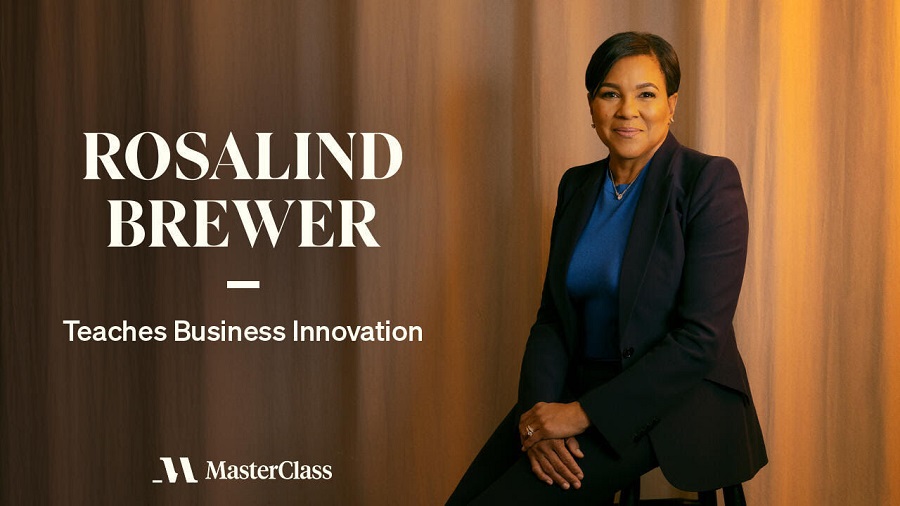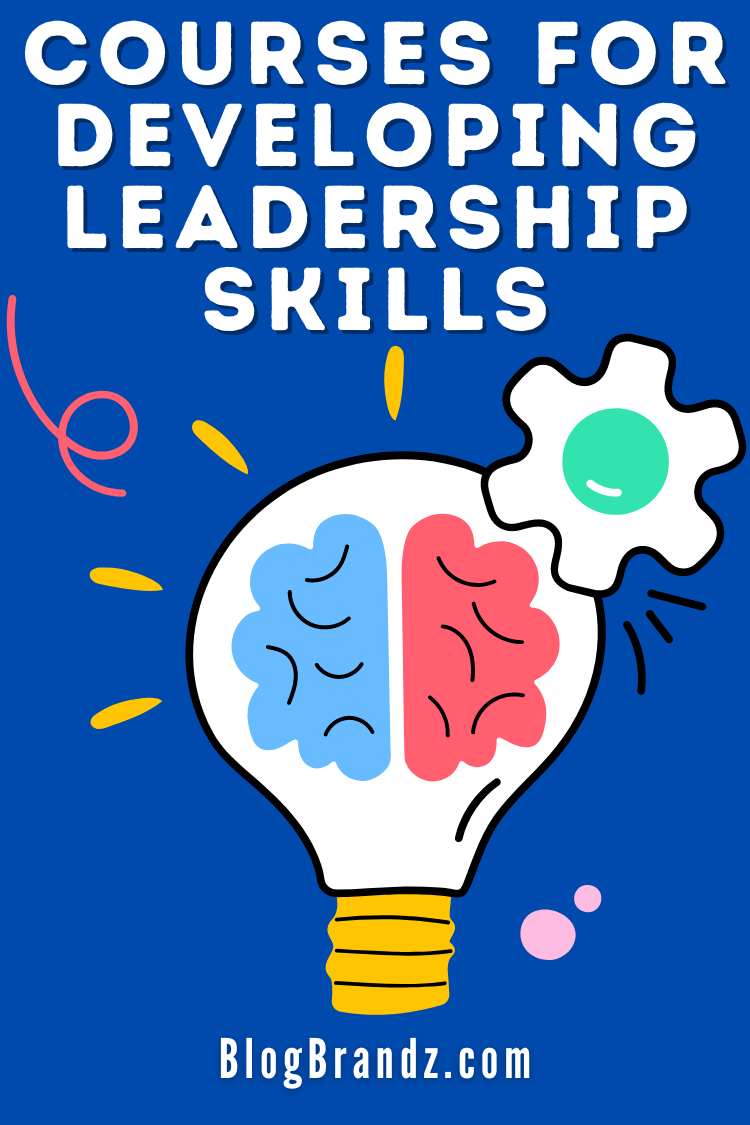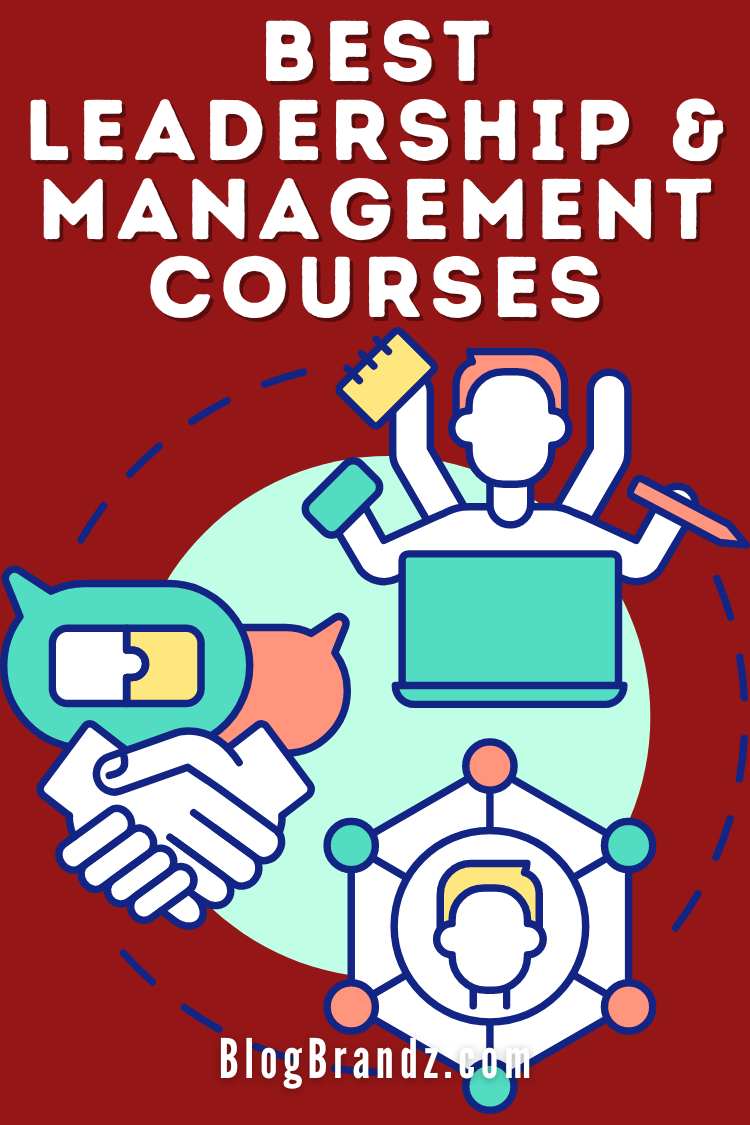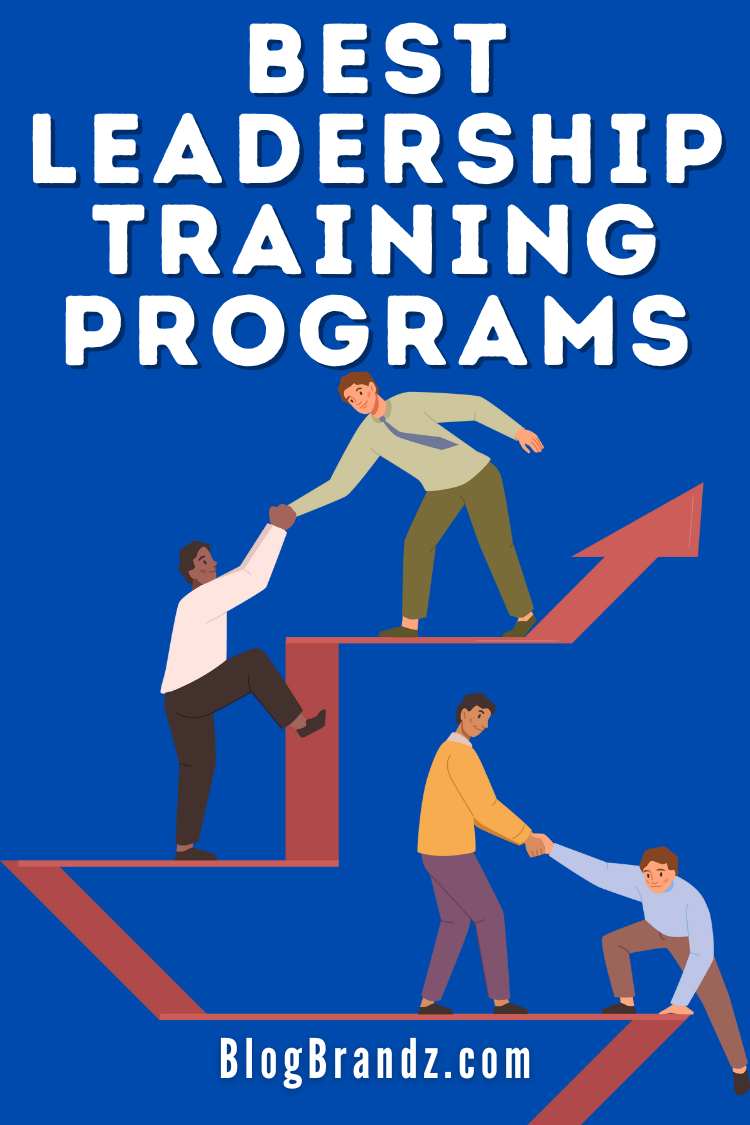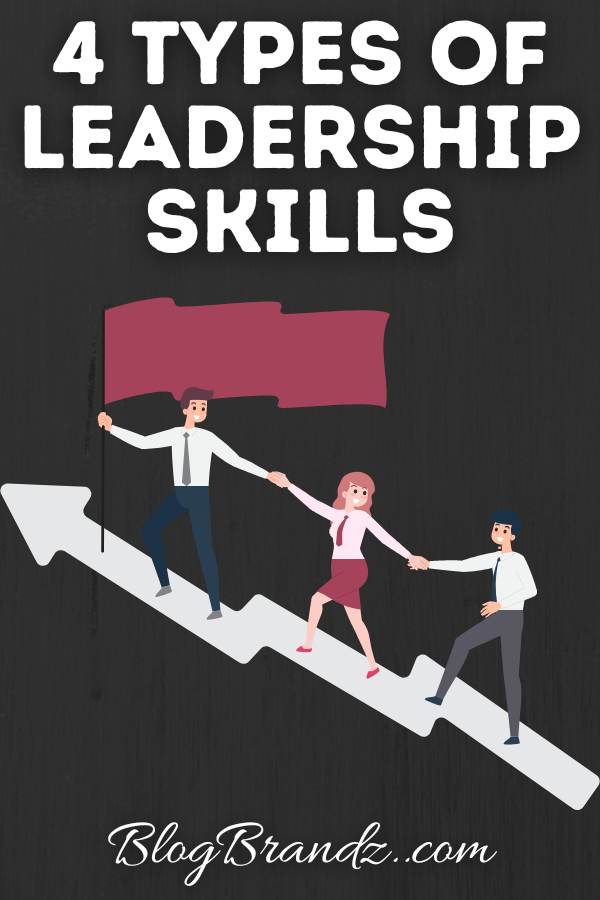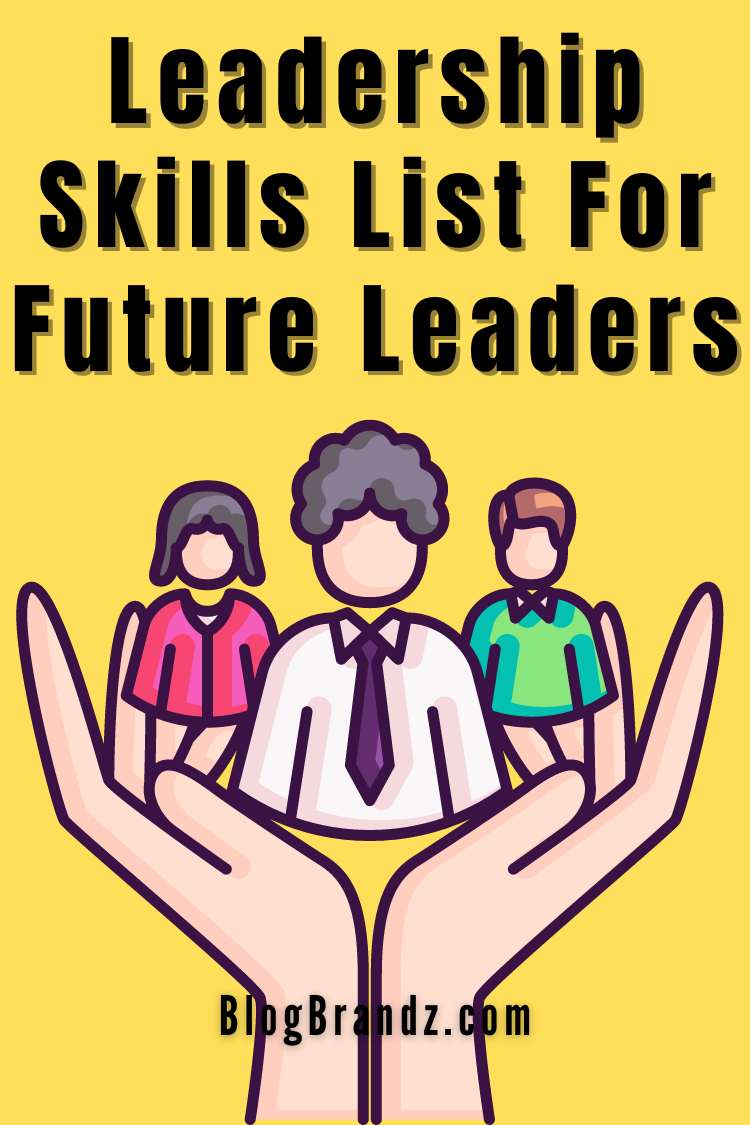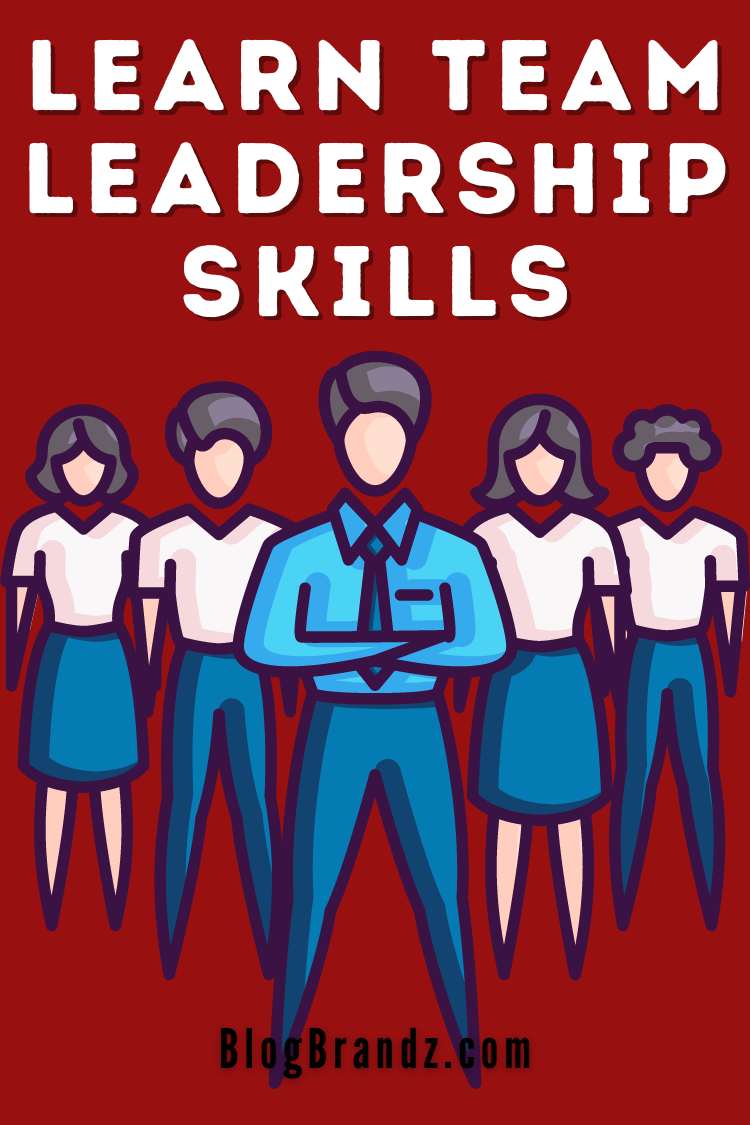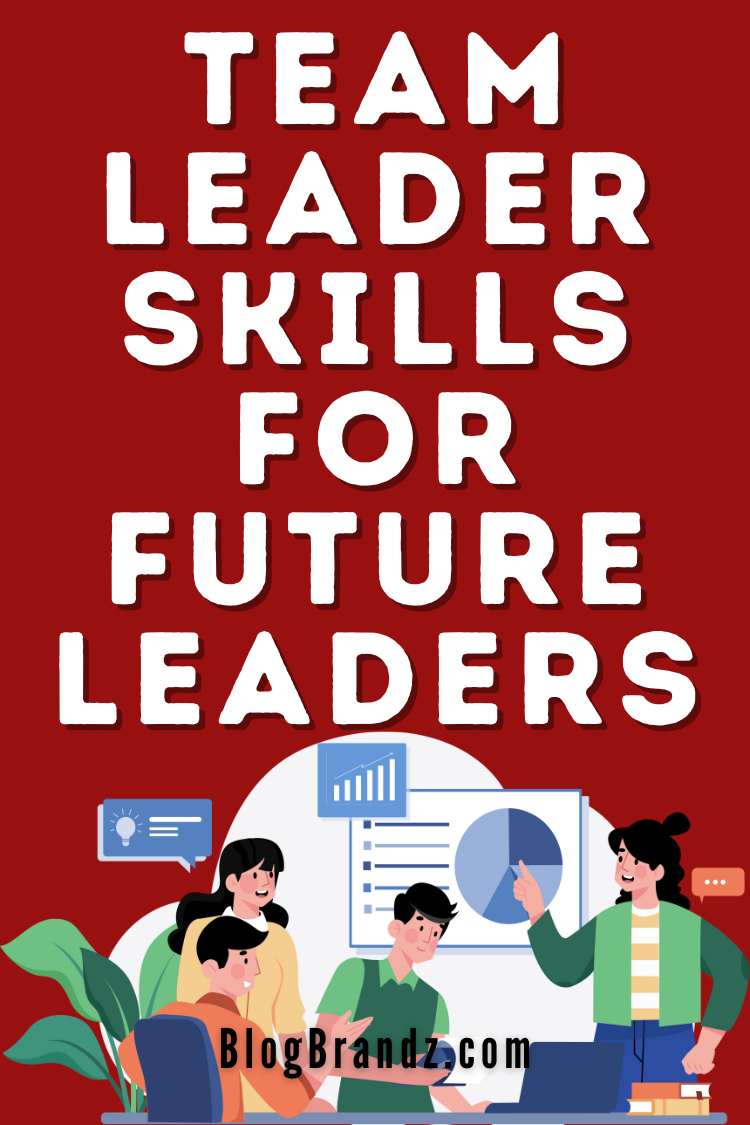
What are the good qualities of a leader? Learn the top leadership skills to develop in the workplace to build a successful, profitable organization.
Leadership abilities are developed by intentional efforts and are not merely about innate talent. Developing key leadership skills for the future will help organizations shape effective teams and build resilient companies.
In this article, we explore how leadership skills can be developed by investing in personal growth, to ensure leaders are equipped with key leadership skills for the future.
Contents
Why are leadership skills important?
Leadership skills are important for any situation, whether in the workplace or in other areas of life. Leadership is about being a good role model and leading by example. Leaders are responsible for motivating, inspiring, and guiding their teams while ensuring everything runs smoothly.
Strong leadership skills make it easier for people to work together and accomplish tasks more efficiently. Developing stellar leadership skills can help you build strong teams and maintain collaborative relationships within teams.
Effective leaders can also help resolve conflicts quickly and effectively – something that requires excellent communication and team leadership skills.
Leadership skills are important because they can help you build a successful organization where everyone works together towards a common vision and goal.
Are leadership skills inherent or learned?
Leadership skills can be both inherent and learned. Some people have a natural ability to lead, while others need to learn how to do it.
Those born with an innate leadership quality tend to be confident in their decisions, work well with others, and take initiative. They also possess the ability to think strategically, delegate tasks appropriately, and provide inspiring motivation.
On the other hand, those who learn to be leaders must first recognize their strengths and weaknesses before developing their skills through practice and experience.
They can benefit from leadership training and learning from mentors. Ultimately, whether someone is an inherent or learned leader depends on their individual personality type and environment.
Leadership skill vs leadership quality
Leadership skill and leadership quality – these are two different concepts, but both are important components of successful leadership.
Leadership skills refer to the specific abilities a person has that enable them to lead others effectively. Leadership qualities refer to innate personality traits such as confidence, courage, integrity, humility, and the ability to motivate others.
Leadership skills can be learned and developed over time, while leadership qualities are more innate personality traits. However, leaders need to know which skills and qualities they possess.
This will help them assess their strengths and weaknesses to understand which leadership skills to learn and improve. If you’re a fast learner determined to learn leadership skills and qualities, you’ll soon be on your way to becoming an effective leader.
How can leadership skills contribute to career advancement?
If you want to start learning skills for a job interview, learning leadership skills for employment can be incredibly beneficial in helping to advance your career.
Strong leaders are often seen as go-getters and innovators, which can help you stand out among your peers and colleagues when seeking career advancement opportunities.
By displaying strong leadership qualities in the workplace, you can demonstrate a dedication to taking initiative and responsibility for your work. This shows that you have the potential to take on more challenging roles and responsibilities within a company or organization.
Good interpersonal skills involve working well with others and motivating them toward success. Strong problem-solving skills allow you to quickly identify issues and develop solutions to guide the team forward.
How can leadership skills be developed?
To develop leadership skills, develop active listening skills, and learn to empathize with others. This means looking at things through the eyes of those around you to understand different points of view.
A positive attitude and setting achievable goals are important leadership skills to develop self-confidence and motivate team members.
Learning from failure is an important part of developing leadership skills. Reflecting on past experiences and using them to inform current decisions can make you a more effective leader.
You can learn leadership skills online, but people management skills take time and experience to develop, so becoming a leader should be a long-term goal of continuous and lifelong learning.
What are the 5 good qualities of a leader?
Leadership qualities are the traits and characteristics that enable a leader to guide, motivate, and inspire others to reach their goals.
The five most important, good qualities of a leader are integrity, vision, confidence, communication, and resilience.
- Integrity is the foundation of good leadership because it compels you to be honest in all situations without compromising your ethics or values.
- Vision is the ability to set long-term goals and create a clear pathway to achieve them.
- Confidence is vital for any leader. Faith in oneself and one’s decisions is a prerequisite for inspiring trust in others.
- Communication is essential for leaders to effectively communicate their thoughts and opinions clearly so that others understand them.
- Resilience is an essential leadership trait and encompasses several skills, including emotional self-regulation, the ability to remain calm under pressure, bounce back after failure or setbacks, and persevere through difficult times.
What are the 4 types of leadership skills?
There are four main types of leadership skills: interpersonal, problem-solving, decision-making, and communication.
- Interpersonal skills help you work well with others, build relationships, and motivate team members.
- Problem-solving skills help you identify problems, develop solutions, and implement them.
- Decision-making skills involve making sound decisions based on facts and data while understanding the implications of those decisions.
- Communication skills are key to effectively communicating your vision and goals to your team members ensuring that everyone is working towards the same goal.
Leadership skills are vital for any business or organization to succeed, so leaders need to hone these four types of leadership skills.
Top leadership skills to develop in the workplace
Leadership skills and soft skills are some of the most important 21st-century skills for students to develop as future leaders. This leadership skills list includes the best skills to develop to grow your career.
#1. Communication skills
Communication skills are some of the key skills for jobs of the future. These soft skills can help you in any personal or professional situation, and make a huge difference in your relationships with others.
Communicating effectively will enhance your team leadership skills as it helps you express yourself clearly and accurately, create meaningful connections with people, and resolve conflicts.
Good communication requires active listening, understanding nonverbal cues, expressing your thoughts and feelings, managing emotions and stress, being patient and respectful, and staying open-minded.
Powerful, confident body language gestures can help you improve your nonverbal communication, project more confidence at work, and feel more confident in business.
Assertive communication is critical for future leaders, new managers, and introverts. It helps you tell people what you think and feel, so you can set boundaries when required.
In an age where most of us communicate online via email, Slack, and social media, it’s also important to elevate your written business communications and develop excellent business writing skills by learning to write clearly and concisely.
Developing strong communication skills can help you improve all areas of your life from personal relationships to professional success. Effective communication skills are an invaluable asset that will serve you well.
Communication skills courses:
- Confident Body Language Course
- Assertive Communication Skills Masterclass
- 13 High-Stakes Communication Skills for Business Success
- Improve Your English Communication Skills Specialization
- George Stephanopoulos MasterClass on Purposeful Communication
- Robin Roberts MasterClass on Effective & Authentic Communication
- FBI Hostage Negotiator, Chris Voss MasterClass on the Art of Negotiation
#2. Ethical decision-making skills
Ethical leadership and good decision-making are closely intertwined, especially in the age of AI, where leaders must navigate complex challenges with integrity and foresight. Ethical leaders ensure that AI is used responsibly, balancing innovation with fairness, transparency, and accountability.
By integrating ethical considerations into their decision-making processes, leaders can address issues such as data privacy, bias, and the broader societal impacts of AI. This requires strong problem-solving abilities, analytical thinking, and the capacity to weigh the pros and cons of every decision.
Good decision-making involves identifying a problem, developing and evaluating solutions, assessing risks, and taking decisive action. Ethical leaders rely on these logical steps and incorporate intuition, much like Richard Branson and Jack Welch, who often make decisions based on gut feelings.
In the age of AI, ethical leadership ensures that decisions are effective and socially responsible, helping leaders build trust and create sustainable solutions that benefit both organizations and society at large.
Ethical leadership courses:
- AI for Good Specialization from DeepLearning.AI
- Ethical Decision-Making in the Tech Industry Specialization
- AI, Empathy & Ethics from the University of California, Santa Cruz
- Artificial Intelligence: Ethics & Societal Challenges from Lund University
- Ethical Leadership Specialization from The University of Notre Dame
- Ethical Leadership Through Giving Voice to Values from the University of Virginia
#3. Strategic thinking skills
Strategic thinking skills are essential for business success. They allow individuals to define a goal, plan to achieve it, and analyze the results.
Strategic thinkers can identify opportunities and create innovative solutions that help the organization reach its objectives. They can also think critically and objectively about different scenarios to develop the best possible decision.
With strategic thinking skills, leaders can also develop strategies that help them navigate difficult situations and make informed decisions. This type of leadership skill is essential for business growth and development, and improving overall performance.
Strategic thinking courses:
- Strategic Planning and Execution
- Building Strategic Foresight Capabilities
- Strategic Thinking for Everyone Specialization
- Strategic Leadership: Impact, Change & Decision-Making Specialization
- Strategizing: Management for Global Competitive Advantage Specialization from Macquarie University
#4. Delegation skills
Delegation refers to the act of assigning tasks or responsibilities to others. It involves identifying the right people for specific tasks and empowering them to execute tasks independently while maintaining accountability.
Delegation skills are essential for any manager or leader to assign tasks and manage their own workload, and that of their team more efficiently. Effective delegation allows leaders to focus on higher-level responsibilities while ensuring team members contribute according to their strengths and expertise.
You can develop good delegation skills by understanding each team member’s strengths and weaknesses and allocating tasks accordingly. Provide clear instructions and set expectations so everyone knows their tasks.
Offering feedback on work performance can help team members learn from their mistakes and become better at their tasks. Providing support and guidance when needed helps build trust and creates a sense of responsibility in each individual.
With these steps, leadership and management can develop effective delegation skills and create a productive working environment.
Courses on delegation:
- Organizational Leadership Specialization from Northwestern University
- IBM’s People & Soft Skills for Professional & Personal Success Specialization
#5. Innovation & problem-solving skills
Problem-solving and innovation skills are closely related, as both involve finding solutions to challenges but approach them from different angles.
Problem-solving involves identifying, analyzing, and resolving issues through a structured process that requires logic, critical thinking, and creativity. Effective problem-solvers must evaluate potential solutions and select the best course of action.
Innovation involves creative thinking to develop new ideas, methods, or products that push boundaries and offer novel solutions. Often, innovation emerges when traditional problem-solving methods fall short, requiring out-of-the-box thinking to generate transformative changes.
One way to develop creative problem-solving skills is through practicing creative thinking and brainstorming. When faced with a problem, aim to generate as many possible solutions, even if some seem far-fetched.
This open-minded approach encourages the exploration of diverse ideas and solutions. Practicing critical thinking allows you to evaluate the pros and cons of each option before making a decision.
Your creative problem-solving skills will improve with consistent practice, enabling you to develop more effective solutions for any challenge. Combining strong problem-solving abilities with innovative thinking will empower you to tackle complex issues and create impactful results.
Innovation & problem-solving courses:
- Bill Nye MasterClass on Science & Problem-Solving
- Rosalind Brewer MasterClass on Business Innovation
- Anna Wintour MasterClass on Creativity & Leadership
- Richard Branson MasterClass on Disruptive Entrepreneurship
- Dr. Cornel West’s MasterClass on Philosophy & Critical Thinking
#6. Team leadership
Team leadership is essential for future leaders because it fosters collaboration and drives collective success. Leading diverse groups toward a shared vision is critical in a connected world.
Leaders who excel in team leadership can harness individual strengths, create a culture of trust, and inspire people to contribute their best. This ensures every team member feels valued, motivated, and aligned with the organization’s goals, leading to higher performance and innovation.
Additionally, strong team leadership prepares future leaders to navigate challenges and change effectively. In dynamic environments, where industries are rapidly evolving, leaders must be able to adapt quickly and guide their teams through uncertainty.
By mastering team leadership, future leaders develop the resilience and flexibility to manage crises, resolve conflicts, and maintain morale. This ability to lead with empathy, communication, and a focus on team cohesion will be increasingly vital as workplaces become more complex and collaborative.
Unlock your leadership potential with Coach K’s MasterClass, led by the most successful men’s college basketball coach in history. Coach K shares his expertise in building effective teams, bouncing back from setbacks, recognizing talent, resolving conflict, and giving constructive feedback.
You’ll learn to foster a values-driven culture, motivate teams, and enhance communication. Whether in sports or business, this course equips you with proven leadership techniques that have inspired athletes like Kobe Bryant and Shane Battier.
Team leadership courses:
- How to Hire & Manage Virtual Teams
- Culture-Driven Team Building Specialization
- Geno Auriemma MasterClass on Leading Winning Teams
- High-Performance Collaboration: Leadership, Teamwork & Negotiation
- Leading Teams: Building Effective Team Cultures
- Teamwork Skills: Communicating Effectively in Groups
#7. Mentoring & motivating others
Mentoring and motivating others are crucial for effective people development, contributing significantly to individual and organizational growth.
Each team member’s unique motivations are shaped by their experiences and aspirations, making it essential for leaders to understand what drives each individual. By recognizing these factors, leaders can tailor their approaches, fostering an environment where team members feel valued and inspired.
Learning coaching and facilitation techniques can enhance your mentoring and motivation skills. Facilitators excel at guiding discussions and creating inclusive environments that encourage collaboration.
Reflecting on your personal experiences can also provide insights into effective motivation strategies. Participating in leadership development courses or MasterClasses led by successful leaders can equip you with practical tools and best practices to inspire your team.
Investing in these skills will help you become a leader who drives results and empowers others to reach their full potential.
Courses on coaching teams:
- Coaching Skills for Managers Specialization
- Coach K MasterClass on Values-Driven Leadership
- Critical Leadership Training with Navy SEAL Veteran Jocko Willink
#8. Emotional intelligence & empathy
Developing emotional intelligence skills can be challenging yet rewarding, significantly enhancing interpersonal relationships. This essential soft skill improves with time and experience and requires deep self-awareness.
By learning tools for emotional intelligence and mindfulness, you can calm anxiety, manage your emotions, and build resilience to handle life’s stresses effectively.
Managing conflict effectively involves using skills such as rapport, empathy, and active listening to improve communication and foster emotional intelligence in the workplace.
Relational intelligence further empowers you to connect with others, helping you create and maintain deeper, more meaningful relationships.
Empathy, a highly valued leadership trait, is cultivated through emotional intelligence. It helps one better understand and manage emotions while empathizing with others.
To enhance your empathetic leadership skills, consider reading books, listening to podcasts, or taking online courses focused on emotional intelligence and building interpersonal relationships.
Emotional intelligence courses:
- Esther Perel MasterClass on Relational Intelligence
- The Art of Intelligence MasterClass with Former CIA Officers
- Conflict Management with Emotional Intelligence
- Jon Kabat-Zinn MasterClass on Mindfulness & Meditation
- Emotional Intelligence: Master Anxiety, Fear, & Emotions
- Empathy MasterClass with Pharrell Williams & Co-Instructors
#9. Adaptability & resilience
In a fast-paced world, adaptability and resilience are essential for effective leadership. The ability to adjust strategies, workflows, and mindsets in response to sudden changes — such as market disruptions, technological advancements, or global crises — ensures a leader can keep their organization on course.
Resilience, on the other hand, helps leaders maintain their composure, confidence, and determination in the face of setbacks. Leaders who embody these traits inspire their teams to embrace challenges with optimism, turning obstacles into opportunities for growth.
By fostering adaptability and resilience, leaders can build a culture of agility, positioning their organizations to thrive amid uncertainty. So, learn how to control your emotions, be composed, and stay calm under pressure to start building resilience at work and be a resilient leader.
Courses for building adaptability and resilience:
- Adapting: Career Development Specialization
- Hillary Rodham Clinton’s MasterClass on the Power of Resilience
- Resilience & Leadership: Tools, Methods, & Applications
- Resilience At Work: Control Your Emotions & Stay Calm Under Pressure
#10. Digital literacy & technological savvy
As digital transformation reshapes industries, future leaders must possess strong digital literacy and technological savvy. Understanding emerging technologies — such as artificial intelligence, blockchain, and big data — enables leaders to make informed decisions and identify opportunities for innovation.
Leaders must be comfortable using digital tools to streamline processes, enhance collaboration, and drive data-driven strategies. Beyond simply adopting new technologies, leaders should foster a digital mindset within their teams, encouraging continuous learning and experimentation.
Those who can harness the power of technology will enhance operational efficiency, gain competitive advantages, and future-proof their organizations in an increasingly digital world.
Courses to learn digital literacy:
- Applied Digital Literacy Specialization
- Achieve More With GenAI MasterClass
- AI For Everyone from DeepLearning.AI
- Introduction to Digital Transformation by Siemens
- AI Foundations for Everyone Specialization from IBM
- Business Implications of AI: A Nano-course from EIT Digital
- AI For Business Specialization from the University of Pennsylvania
Why should organizations invest in leadership development?
Leadership development is a key factor in organizational success, so companies committed to building future leaders should invest in leadership programs for employees and executives.
By helping their executives develop strong leadership skills, organizations can ensure they have the tools and knowledge to effectively lead their teams and make sound decisions.
Leadership development also helps to foster an environment of collaboration, innovation, and productivity. It enables individuals to become more confident in their abilities and can better motivate those around them.
Investing in leadership training programs for employees can help organizations develop innovative strategies that will help them remain competitive in the industry.
Fostering a sense of community and trust among teammates enhances workflow and productivity. Leaders need training in inclusive leadership skills to create an atmosphere where people’s differences are celebrated and new ideas can flourish.
Leadership activities and training can help employees build good leadership skills, create a positive atmosphere, inspire people to work together and bring out the best in everyone.
Leaders must understand the importance of diversity and inclusion and nurture women in leadership to ensure that every voice is heard and respected for a successful team.
In today’s business world, effective leadership skills are essential for success. By cultivating these leadership skills and qualities, future leaders can successfully guide their organizations to become inclusive, profitable, and great places to work.
Courses for developing leadership skills
- Connected Leadership by Yale University
- Leadership for the Future Specialization
- Leadership in 21st-Century Organizations
- Indra Nooyi MasterClass on Leading with Purpose
- President Bill Clinton’s MasterClass on Inclusive Leadership
- Hillary Rodham Clinton’s MasterClass on the Power of Resilience
- Former Starbucks CEO, Howard Schultz Teaches Business Leadership
- Doris Kearns Goodwin’s Presidential History & Leadership MasterClass
© 2024, Priya Florence Shah. All rights reserved.
Priya Florence Shah is a bestselling author and an award-winning blogger. Check out her book on emotional self-care for women. Priya writes short stories and poetry and chills with her two-legged and four-legged kids in her spare time.
Discover more from Business & Branding Tips
Subscribe to get the latest posts sent to your email.


